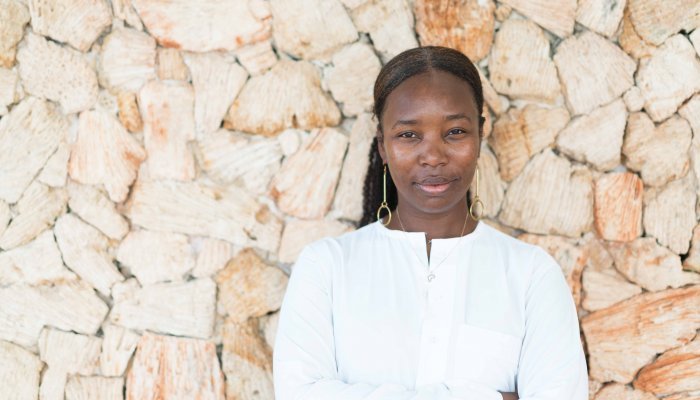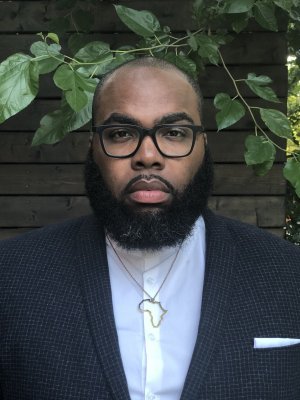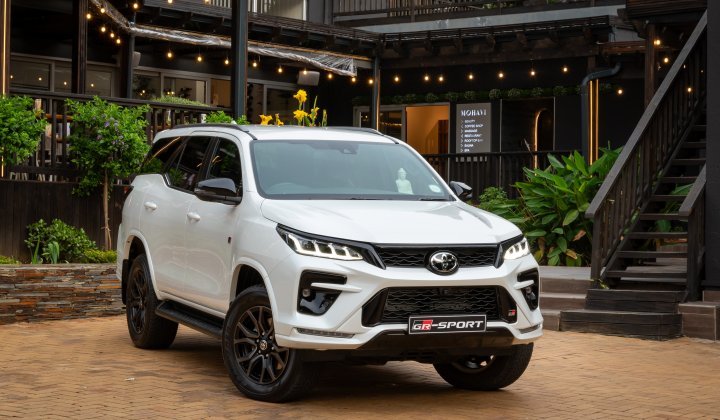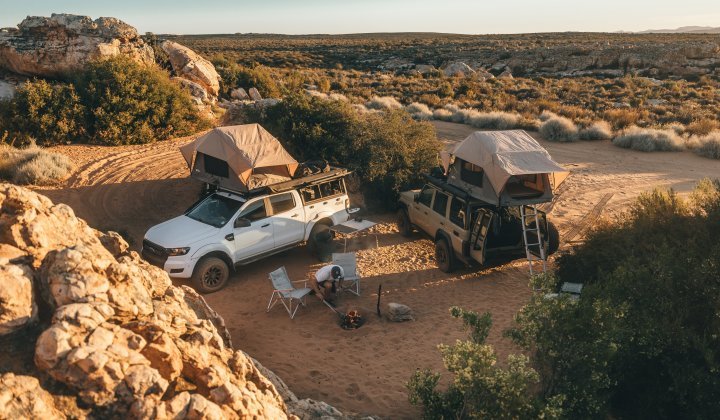Travel Power – The Diaspora
2020 was a year of massive change. Not only did the coronavirus pandemic disrupt the travel industry, but the protests after George Floyd’s death caused many black people to reconsider their place in the world.
“There’s an awakening right now with black people around the diaspora,” says Rondel Holder, a New York-based multimedia content creator. “It’s not necessarily economic yet, but there’s a sort of spiritual movement where everyone wants more purpose, connection, and meaning in terms of where they come from and why they’re here. For black people in America, the racial tensions over the last couple of years have pushed us to think about whether or not we’re in a place where we’re happy. If not, where might we feel welcome? And why haven’t we been there?”
Holder, who’s now been to over a dozen countries in Africa, fell in love with the diversity of experiences. And while he’s always had a connection to black people worldwide, visiting the ‘motherland’ solidified its place in his heart. The same can be said of Tiffanie Anderson, founder and CEO of Always Africa, a black-owned destination management company (DMC) offering tours across the continent.
“You can travel to so many places in the world, but for some people, when you travel to Africa, it feels like home,” she says. “If you’re travelling with an open mind and an open heart, something about the continent just grabs your spirit. Personally, travelling to South Africa to study abroad was my first time on the continent and the first time I felt at peace.”
Different experiences
Anderson was born in New York and is of Jamaican descent. She lives her life as an example to other black travellers by making them realise that if they don’t feel comfortable in the US (or anywhere else), they can feel welcome in Africa. Indeed, given that most of her clients are from the diaspora, she’s seen many people looking for a different experience in a place where they can connect.
“When people travel these days, it’s not just about getting the best backdrop for an Instagram picture,” she says. “It’s about the people we can connect with in the destination we’re travelling to. What’s the opportunity or possibility of revisiting this location, investing in this location, or possibly moving to this location? That’s what Africa provides now.”
Over the last several months, Holder has seen a surge in people reaching out to enquire about tours. He attributes part of this growing interest to the rising influence of African culture. As someone who is also of Caribbean descent, he understands the need to make a pilgrimage journey to the continent for the “connection and conversations”.
“Once a black person takes a trip to Africa for the first time, they feel what an experience it is,” he says. “They realise it’s something deeper than what was taught to you or what you’ve seen. Often, when black travellers reach out, they’re not necessarily educated on all the different experiences on the continent or where to start. They’re just pointing to this huge map and saying ‘I want to go there’. I help them refine what that experience can be based on and what their interests are.”
Bringing people together
To provide travel experiences that have a lasting impact on minds and hearts, Holder works with vendors who have a lineage to the country he is visiting. And while he admits that in a perfect world he would collaborate with everyone, he believes that “we have to do the work to reverse what has been done for centuries”.
“A lot of the countries in Africa have been taken advantage of,” he says. “So I make a concerted effort to find black vendors. That’s not to say that’s the only thing we’ll do, but I make sure that I’m putting dollars in the pockets of people who can tell the right stories, who have the right experience, and who may have struggled to get to that point. I know what that experience is in America, so I’m going to do my best to provide an opportunity for black Africans.”
Anderson agrees that the best way to create the kind of experiences that will fuel the continued upward trend of black people travelling to Africa is to provide authenticity. It’s not just about the money; it’s about bringing people together.
“When you arrive in Africa, I think it’s only fair that you’re greeted by an African from the country you’re travelling to,” she says. “And so I have a rule that I only work with African-owned companies, and I will search and ask around. This is tough in Cape Town, where there are so few black-owned businesses, guesthouses, restaurants, and tour companies. I’m not a tour leader, despite how many times I’ve travelled to South Africa, and cannot tell the story like a South African can. So these are the partnerships we’re looking to form.”
Connection in the community
For Anderson, one of the most important things is for destinations to offer a “welcoming energy and vibe”. This isn’t just about a great travel experience; it can also boost the African economy. Specifically, if people in the diaspora have at least one connection (maybe to a family member or a friend saying they should come back), they’re more likely to put their time, energy, and money into Africa.
“What can we do to collaborate and make this movement bigger than it is?” she asks. “It’s a layered approach of SMEs, government agencies (such as tourism boards), and different DMCs and tour companies working together to welcome those who are travelling. Another thing that plays into wanting to travel is content. But when I look at magazines or marketing from countries like Mauritius or Seychelles, I still see European Baby Boomers. They’re not targeting black travel communities [even though] African Americans spent US$63 billion on travel in 2019.”
To address the gap he found in content targeting black travellers, Holder created Soul Society 101 as “a space for black people to see themselves travelling the world”. Because mainstream publications didn’t speak to his perspective and interests, he began sharing inspirational and aspirational content on social media to create a connection in the community, allowing them to experience new things.
“Even if it’s for the visuals alone, you see things that you might never have seen before,” he says. “You’re learning about the beauty, the richness, and the culture – there’s so much similarity once people go to these different destinations. And as people are learning that, they’re getting more excited… The sense of disconnect is so real that people are yearning to reconnect. But if you’re going to Paris for the umpteenth time, you’re missing out.”
Case studies
How can African countries better attract black travellers? Tiffanie Anderson has three tips:
1. Make people welcome (Ghana)
Look at Ghana as a leading example of a welcoming nation. When people arrived for its ‘Year of Return’, it wasn’t about a transaction of travelling to a country, going from one destination to the next, and then departing with a great memory. In Ghana, the locals wanted to connect to the travellers as well. So, when we talk about bridging the gap, it’s about having a genuine conversation and meaning it when you say “welcome home”. It’s not just through the words, but also through the action.
It’s important for many Africans born on the continent, and even tourism boards, to understand that for so long, black people throughout the diaspora have been looking to connect to their roots. And for those who consider Africa their true home, and truly where their ancestors are from, nothing feels better than being welcome. So when people travel to Ghana, there’s a natural connection. Everyone wants to share their information to know what they’re doing and when they’re coming back.
2. Promote local tourism (Ethiopia)
Tourism boards are now focusing on domestic tourism, but what happens when borders reopen? Are they going to push domestic tourism aside again? Then it’s going to be the same cycle because, if it’s not Covid-19, it will be something else. That’s why it’s important to work from within. For example, Ethiopians pay a small percentage of the fee to travel throughout Ethiopia. Also, whenever you travel to a different destination in Ethiopia, you have to pick up a new, local guide.
If you have so many beautiful natural wonders in your country, you would want your people to visit these places. They are your marketing tools and can talk or blog about their experience. They can put up pictures about their experience as Ethiopians living in Ethiopia. So, it’s important to make sure that domestic tourism is a priority like international tourism.
3. Highlight hidden gems (South Africa)
It’s important for tourism agencies to listen to clients about what they want to experience. For example, when you go to South Africa, you’re going to see Table Mountain in Cape Town, the Apartheid Museum in Johannesburg, and go on safari. What about experiences beyond that? They’ve done such a great marketing job with safaris in Africa that clients are upset if we have an African tour without a safari. But I think it’s important to start highlighting hidden gems.
When you go to tourism expos, usually those who can afford the largest booths are in a certain area when you first walk in. The hidden gems are literally hidden in the corner of these expos. It’s about acknowledging the general adventures or experiences on offer but also considering what else we can showcase or promote within a country. This makes it easier for DMCs and tour companies to go into a country and offer something different.
Travel Power - Africa
Penny Ndlela, founder and CEO of Soul Traveller Tours, is on a mission to get South Africans to fall in love with their country and continent. She also wants to break down barriers by creating experiences that allow people to share their cultures.
“We have a history when there wasn’t freedom of movement within South Africa, specifically for black South Africans, which led to isolation in terms of cultures, and not enough engaging,” she says. “And even though we have 11 official languages, there wasn’t much integration and connectivity. Instead, we were foreigners to each other. So, we created group travel experiences that allow people to share stories with one another.”
To further allow people to get to know each other, the company has curated dozens of experiences for South Africans and other travellers from the region. It has also started to open its travel experiences to the continent. Its clients are looking for “an ability to engage; not just to receive information but also to share information about who they are and where they’re from”.
“For the South African traveller – and this is purely based on our history – the interest is different,” she says. “So I don’t arrive as a South African in another African country. I arrive as a Zulu person. And with that Zulu lens, I want to know about the rituals of birth and death and love. What interests me is how a tradition can evolve in a modern space, whether it is through art, music, or food. So our lens, in terms of how we want to engage with our fellow African brothers and sisters, is different. We’ve curated experiences with that in mind.”
In creating a traveller experience, it’s important to be mindful of what the traveller wants. Ndlela believes that this will help tourism providers improve the service they offer and equip people to share their stories. It’s why a big part of her business is about “investing money into something that’s going to better the community and the country”.
“What’s amazing about African Americans or people from the diaspora is the ability to articulate the story of who they are,” she says. “But it’s not easy for Africans on the continent to brag about who they are. I think it’s ingrained in how we’re raised to be reserved and not outspoken. So there’s a lot of prying before you get to exactly who the individual is. But if there was a formal training of storytelling, which we’re good at, we can tell the story in an engaging, affirming, and informative way. That’s something young people can do in terms of learning about each other.”
Connect on a real and authentic level
For a long time, African people aspired to holidays in Europe because a trip overseas set them apart from everyone else. But Ndlela is now seeing a shift. With more black travellers worldwide seeing Africa as exciting, it feels to her “like when those faraway cousins who you thought were cool suddenly think that you’re cool, too”.
“My children need to know about the baobab tree before they know about the Eiffel Tower,” she says. “My children need to know about the forward-thinking civilisations of African people before they know about Zeus and Greek mythology. And so there’s an awakening that’s happened. Everyone’s interest converged into this space that says we also have something to offer. Let me value my own backyard. Let me value my own people. Let me see what my people have.”
Indeed, the idea of having a deeper connection with other people is also a big shift, Ndela sees. Because many travellers might not feel welcome in certain places, they choose others instead. But the risk is that travelling like this becomes just a transaction in which “you pay your tour price, you get on the bus, and off you go”.
“People are over the hype,” she says. “We want to connect on a real and authentic level. We want something that’s engaging, enriching, and leaves you feeling that you’ve been acknowledged as a human being. It needs to be deeper and more relevant, which is why we’re building a new Africa to speak from our own perspective.”
At the same time, Ndela tells her team that they are “selling a holiday, not a do-good trip”. People need to feel refreshed and energised and not burdened with violence, anxiety, poverty, and all the negativity they’re trying to leave behind.
“Our history is entrenched with division and mistrust,” she says. “We all have within us viscerally that if something is African or black, I’ve got to think about it several times before I can trust it,” she says. “And so the narrative of xenophobia, as horrible as it is, set us back. That’s why we need to build bridges so that even when negativity does arise, we’re able to give each other the benefit of the doubt or engage in conversation to resolve it.”
Barriers to entry
One of the biggest challenges to promoting domestic tourism right now is dealing with the cost, with many lodges priced for the dollar or euro market in a way that’s prohibitive for locals. Not only does this make the traveller suffer (by either paying a fortune or missing out on an incredible experience), but it also impacts other aspects along the value chain.
“Why is it that for South Africans it’s cheaper to pay R20k for seven days in London versus R40k for four days in Cape Town?” Ndela asks. “It just doesn’t make economic sense. Obviously there’s been currency politics over time, which led to why domestic tourism was in single-digit percentages in South Africa. But as a property owner, I’d rather have high occupancy versus the spike of when that dollar or euro traveller arrives.”
While pricing has been exposed as a primary contributor to inhibiting people from travelling (and is the first thing that needs to be addressed), another challenge is infrastructure connectivity regarding transport. On top of this, the complicated nature of getting visas to travel throughout the continent is a huge issue. For Ndela, the only way to overcome these unhelpful barriers to entry is through government intervention.
“There isn’t a unifying board that’s able to look at the continent holistically and drive a unified objective to get connectivity going,” she says. “Countries aren’t speaking to one another. There’s definite interest, but it’s not trickling down to the effort on the ground. It’s still difficult to imagine connectivity from South Africa to Ghana to Marrakesh.”
Building from the ground up
Sorting out the connectivity issues will make it much easier for collaboration to flourish. Indeed, Ndela believes that what the tourism industry needs most right now is for everyone to actively support each other and the desire to travel again. This will create opportunities to develop new experiences and allow travellers to feel the value of the continent.
“I’m hoping that Covid brings some sort of humility and a more intentional approach,” she says. “In fact, Covid has brought us all down to our knees, and we have to build from the ground up. We’ve been provided with an opportunity – specifically governments and tourism agencies – to get back to the people. It makes for an authentic experience.”
[Sidebar]
Rebranding Africa
For many black people in the diaspora, Africa is still just a faraway place they don’t know much about. To address this, Rondel Holder, creator of Soul Society 101, believes it’s important to identify local influencers within every country and bring them together.
“I would love to see tourism boards in Africa partner with content creators to develop content that they want to see,” he says. “When I want to go to a country in Europe, the tourism board sometimes replies within hours. But when I reach out to tourism boards in Africa, I hear crickets. Thankfully, local people have always been welcoming and show me the real experience. But there’s so much more content that I could create should tourism boards be receptive and want to work with us to make something magical.”
Managing content also means managing perceptions. Holder believes there would be a lot less negative coverage about Africa in the media if tourism boards were more proactive about shaping the narrative. And even though a global pandemic might be an insensitive time to promote jetsetters living their #bestlife, Holder believes now is a good time to start collaborating.
“Bad news travels 10 times faster than good news,” he says. “You can have so many positive stories, and even word-of-mouth experiences from people who’ve travelled to the continent, but then you’ll read one headline of xenophobia or someone who got killed. This is unfortunate because the connection is so far removed. And even if it was a once-off situation that doesn’t affect your everyday experience, you’re automatically going to think it’s unsafe to go there.”
Although Holder believes that “the truth should obviously be out there”, he also emphasises the need to have positive narratives to balance it out. It’s about showcasing the full experience so that people can make more informed choices.
“The truth is that bad things happen everywhere,” he says. “For example, if there weren’t so many great things you heard about New York every day, no one would come here either. So that’s the work local groups and tourism organisations have to do in amplifying the positivity, even when it seems like it’s not necessary.”
This is why Holder believes it’s so important to develop partnerships with the right content creators. When he travels to different countries, he works to find these people, many of whom aren’t supported by local tourism organisations even though they create the desire to be there.
“Now, in this downtime that shouldn’t be downtime, we can start planning what to do when things open up,” he says. “We have the audience, we have the community, and we have the skillset. So, let’s work together and make it happen.”
“…I don’t arrive as a South African in another African country. I arrive as a Zulu person.”
“…when those faraway cousins who you thought were cool suddenly think that you’re cool, too”.
“Why is it that for South Africans it’s cheaper to pay R20k for seven days in London versus R40k for four days in Cape Town?”






